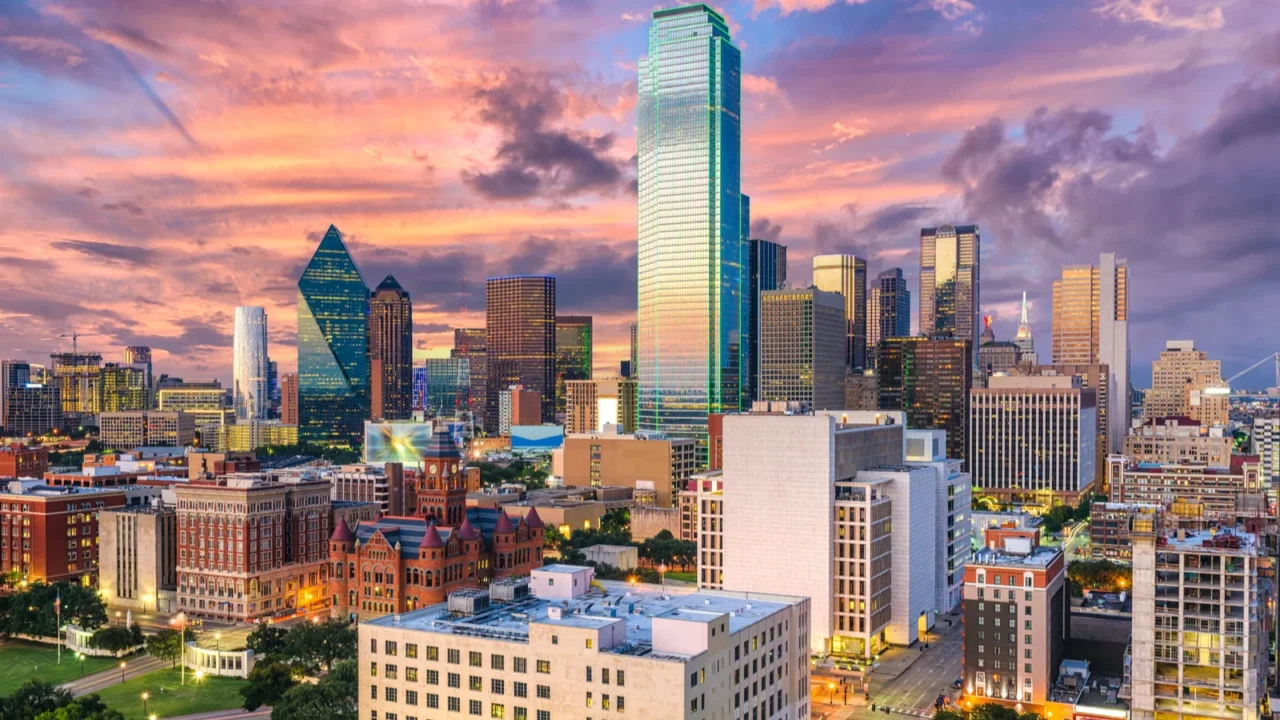
Why businesses are packing up
California has long been seen as the land of big dreams, but now major companies are heading out. Rising costs, strict rules, and housing challenges are pushing businesses elsewhere.
Suddenly, the next big conference or corporate meeting may not be happening in Los Angeles but in Dallas or Austin instead. This shift is reshaping how people think about where the next big opportunities will be.

Taxes make a big difference
One of the loudest complaints from CEOs is California’s high taxes. With state income tax topping the charts, it’s tough for businesses to thrive without cutting costs somewhere else.
That’s where states like Texas come in, offering zero state income tax. The money saved here can instead fuel growth and attract more events, meetings, and business travel. For frequent travelers, this means new destinations suddenly rising in importance.

The Texas takeover
Austin and Houston are turning into magnets for companies leaving California. Tesla, Oracle, and Chevron are just a few that now call Texas home.
This shift is putting Texas cities on the map for business travel. More flights, convention centers, and hotels are expanding to meet demand, creating fresh destinations for travelers. Austin, in particular, blends business with culture, making it a unique draw.

Housing costs matter too
California’s housing market is notoriously expensive, and it’s not just everyday people feeling the squeeze. CEOs like Elon Musk cite sky-high home prices as reasons to move.
Affordable living in other states makes it easier to draw talent. For business travelers, this also means visiting less crowded, more affordable cities where meetings don’t break the bank. It creates a more relaxed environment compared to California’s high-pressure cost of living.

Conferences are on the move
Los Angeles, San Francisco, and San Diego used to dominate the convention scene. But as companies move out, big events are following them.
New hubs like Austin and Dallas are snagging conferences once held on the West Coast. That means a growing chance you’ll travel to Texas instead of California for work. It’s a shift that could completely change where the world’s biggest industry gatherings take place.

Regulations change the vibe
California is famous for its strict environmental and labor laws. While many support these protections, they also add extra costs for businesses.
States like Texas, Florida, and Nevada offer looser regulations, which feel more “business-friendly.” For travelers, that often translates into booming new destinations filled with fresh corporate energy. These new hubs are eager to showcase their flexibility and growth potential.

Airlines adjust their routes
As more companies shift out of California, airlines are paying attention. Demand for flights to Austin, Dallas, and Nashville is climbing fast.
That can mean fewer nonstop routes into certain California cities. But it also opens up more flight options into these rising business destinations. In the long run, travelers may find more convenience in heading directly to booming cities.

Hotels follow the money
Hotels thrive where business travel thrives. California still has plenty of big-name properties, but new demand is fueling expansion in places like Houston and Austin.
You might notice upgraded hotel chains, better amenities, and even more boutique stays popping up in these fast-growing cities. Business relocation often brings travelers, and hotels race to keep up. This growth can also mean better deals for visitors compared to California’s higher hotel prices.

California’s loss, others’ gain
The ripple effect of businesses leaving reshapes tourism, too. Cities that once relied heavily on corporate events may see fewer visitors.
Meanwhile, booming business hubs elsewhere are seeing full restaurants, crowded downtowns, and a buzz of new activity. For travelers, that means more exciting places to explore for both work and play. These cities are quickly learning how to turn newcomers into repeat visitors.

Tech events find new homes
Silicon Valley was once the heart of tech gatherings, but now things are shifting. Austin, dubbed “Silicon Hills,” is attracting more industry meetups.
This trend makes Austin a must-visit for tech pros. It also gives casual travelers the chance to experience the city’s mix of business energy and music culture. With every new event, Austin builds its reputation as a global innovation hub.

Why CEOs love the South
Beyond lower taxes, many CEOs enjoy the lifestyle perks in states like Texas, Florida, and Tennessee. There’s more space, less congestion, and a lower cost of living.
Those perks spill into travel experiences, too. Visitors enjoy more relaxed cities with room to grow, making them attractive spots for both meetings and leisure stays. The lifestyle itself becomes part of the destination’s charm.

Business travel is shifting gears
California’s airports and hotels still see plenty of tourists, but the mix is changing. Leisure travelers may dominate as corporate visits taper down.
On the flip side, cities gaining new businesses are investing in infrastructure. That means smoother experiences for travelers heading there for conventions or meetings. This creates a ripple effect that improves the overall travel experience.

Rising stars in travel
It’s not just Texas, states like Nevada, Arizona, and Florida are benefiting too. As businesses expand, they bring in partners, suppliers, and clients who all need to travel.
For travelers, this opens new options for trips that blend business with leisure. Exploring Phoenix or Miami while attending work events is becoming more common. These secondary hubs are gaining global recognition faster than expected.

California still shines
Even with businesses leaving, California isn’t going quiet. Its beaches, Hollywood, and cultural attractions remain top travel draws.
But the balance is changing. You may find more leisure travelers filling hotels once packed with corporate guests, while new states rise as business trip favorites. California’s appeal will remain strong, but in a different way.

Local economies feel it
When businesses move, local California cities lose more than offices. Restaurants, hotels, and transport services that cater to business travelers also feel the shift.
At the same time, new hubs see those industries boom. For travelers, this means livelier scenes and fresh dining or entertainment options in places you may not have visited before. Entire neighborhoods can transform when the business spotlight arrives.
As business hubs shift, travel experiences evolve too. See how global tourism is struggling in 2025 and what’s driving the changes.

What this means for travelers
If you travel for work, expect to see your destinations changing in the coming years. Instead of flying into San Francisco, your ticket may take you to Dallas or Miami.
Even if you travel for fun, these shifts matter. New business hubs often invest in attractions, hotels, and dining, creating more appealing spots to explore. For travelers, that means more variety and fresh choices when planning a trip.
Travel patterns are changing; discover which U.S. states are seeing fewer Canadian visitors and what that means for tourism.
Would you rather plan your next trip around California’s sunshine or explore one of these rising business hubs? Share your thoughts below.
Read More From This Brand:
- Sneaky visa fees are catching travelers off guard
- A Beginner’s Guide to America’s Quirkiest Roadside Attractions
- Why Rio and Machu Picchu Are the Bucket List Duo of 2025
Don’t forget to follow us for more exclusive content right here on MSN.
This slideshow was made with AI assistance and human editing.